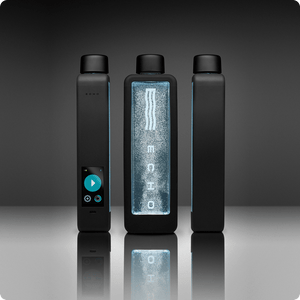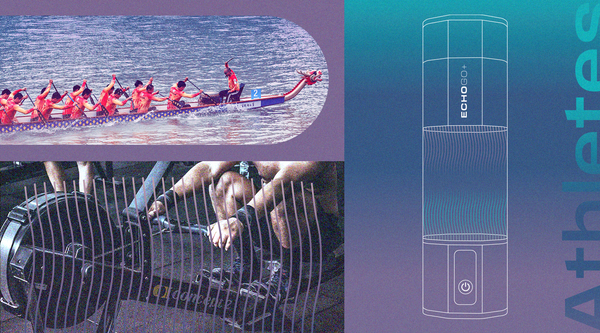Hydrogen: the final antioxidant. These are the voyages of the Echo H2O team. Its five-year mission: to explain strange new scientific miracles, to seek out new advancements and new health benefits, to boldly treat what no man has treated before…with hydrogen rich water.
(Cue Catchy Space Jingle Here)

Okay, okay, we’ve had our fun. We’re obviously not as cool as the Wiliam Shatner. None of us have gone into space. In fact, we haven’t even played someone who went to space (Shatner has done both).
But what if we were to tell you that hydrogen water could make it possible for us to explore deep space?
Well, that’s what we’re here to tell you. In fact, there has been discussion within the scientific community about using hydrogen to treat astronauts when they are way up there.
The Problems With Space Travel
It might sound fun to live somewhere where you are constantly floating around. You can do multiple backflips in the air with ease (Olympic-level gymnasts have nothing on you), you can use the walls to propel yourself across the room, and you never have to touch the floor again.

But…our bodies weren’t really designed for any of that. Most of you reading this are the result of billions of years of evolution on a little blue planet called Earth. This place has a specific type of gravity and atmosphere. For those of you who grew up on another planet, welcome!
If you’re ever lucky enough to find yourself in space, there are two big health hazards you’ll have to look out for: space radiation and musculoskeletal issues.
Space Radiation
Radiation is a type of energy that — according to NASA — “is emitted in the form of rays, electromagnetic waves, and/or particles.”
You deal with radiation every single day. The visible light from the sun is a form of radiation, same with the heat you feel from a fire. There are also X-Rays, which give us insight into what’s going on in our bodies. Too much of those can cause cancer, which is why doctors only use what’s necessary.
In space, there is a different kind of radiation than what you see on Earth. It’s made up of atoms that are moving through space near the speed of light.
When you talk about the atoms you find on earth, they usually have negatively charged particles called electrons floating around them. The ones that come from space radiation have been moving so fast that the electrons are stripped away from them. There are three different sources of this kind of radiation:
- Particles stuck within Earth’s magnetic field
- Particles that were launched into space from our sun’s solar flares
- Galactic cosmic rays - these sound like something from a comic book, but they’re real. They are high-energy particles from outside the solar system.
Exposure to this can create all kinds of health problems for astronauts, especially if they go beyond low earth orbit to places like the moon. Some of the health problems include a risk of cancer, radiation sickness, degenerative diseases, and issues with the central nervous system.
Musculoskeletal Issues
Your muscles and your bones were formed with a very “use it or lose it” mentality. When you’re on Earth, you constantly need your musculoskeletal system to stand upright and take care of yourself.
When you’re in space, you don’t really need them as much. Everything is floating around. You don’t need to lift anything, and standing up isn’t really a thing anymore.
Within your bones, you have cells type builds the bones up, and the other breaks them down.
When you don’t have any gravity, the ones that build the bones up stop working, but the ones that break them down continue. If astronauts don’t take the proper precautions, they can lose 1% of their bone density every month. On top of that, your muscles also weaken because they’re not working quite as hard. For that reason, astronauts work out for about two hours every day.

How Hydrogen Water Can Help
The reason we’re talking about hydrogen water at all is because scientists have discovered that it has powerful antioxidant effects on your body. It has been known to relieve a condition called oxidative stress — which happens when molecules called free radicals tear down the structures of your cells.
Oxidative stress is linked to a whole bunch of conditions including heart disease, Alzheimer's, diabetes, high blood pressure, Parkinson's, and even cancer.
When you’re body is hit by radiation, this triggers oxidative stress, and that’s why scientists in 2010 hypothesized that hydrogen may be able to help. They say that it could reduce the symptoms that come from this kind of radiation exposure.
Their hypothesis didn’t go into the musculoskeletal issues, but a lot of that is also caused by oxidative stress.
Studies That Back This Up
Since the hypothesis was published, there have been at least two studies that have backed up the idea that hydrogen could have some applications in space. Both of them came out in 2013.
In one of them, scientists looked at whether molecular hydrogen could have protective effects against radiation in human cells. What they found was that it did reduce cell death after radiation exposure.
The other study was done on rats. Scientists used a method where they kept the animals suspended in the air to simulate a low-gravity environment for six weeks. During this time, the rats were given hydrogen water. They found that the hydrogen water actually reduced bone loss in the animals.
Clearly, more research needs to be done for us to fully grasp what kinds of benefits hydrogen water could have on people in space.
How To Administer Hydrogen in Space
There are a couple options that scientists propose for the astronauts:
- Breathe hydrogen gas.
- Drink hydrogen rich water.
They acknowledged that hydrogen gas is flammable, but it could still work if “proper precautions” were taken. For example, the cabin air could be kept at 3.9% hydrogen or lower.
With hydrogen rich water, that problem isn’t there. The gas doesn’t make water flammable like you might find from an oil spill, and scientists haven’t found any side effects to it. So that route would be perfectly safe.
Calling On NASA
Scientists say a potential problem with using hydrogen water in space is making sure the water dissolves properly in the water before the astronauts drink it.
We believe our products at Echo H2O could be the answer to that problem. They work by breaking down water molecules using an electric current. This makes it so other bonds are formed, including molecular hydrogen (made up of two hydrogen atoms).
So if anyone reading this works with NASA, we’d like to make you a deal. If you’d like to do more studies about hydrogen water, we are more than willing to let you use as our machines for free. Let's talk! 😊
For all the “normal people” like us, you can create hydrogen water of your own with the Echo Go+ Hydrogen Water Bottle. It works within minutes, and you can take it anywhere!
Click here to get your Echo Go+ today!







